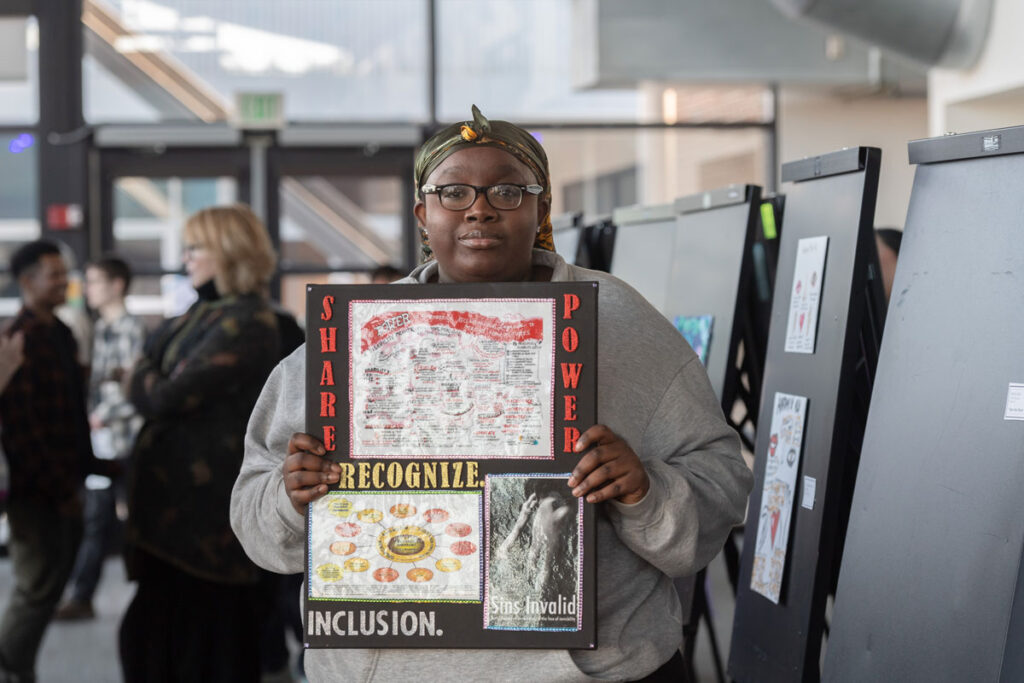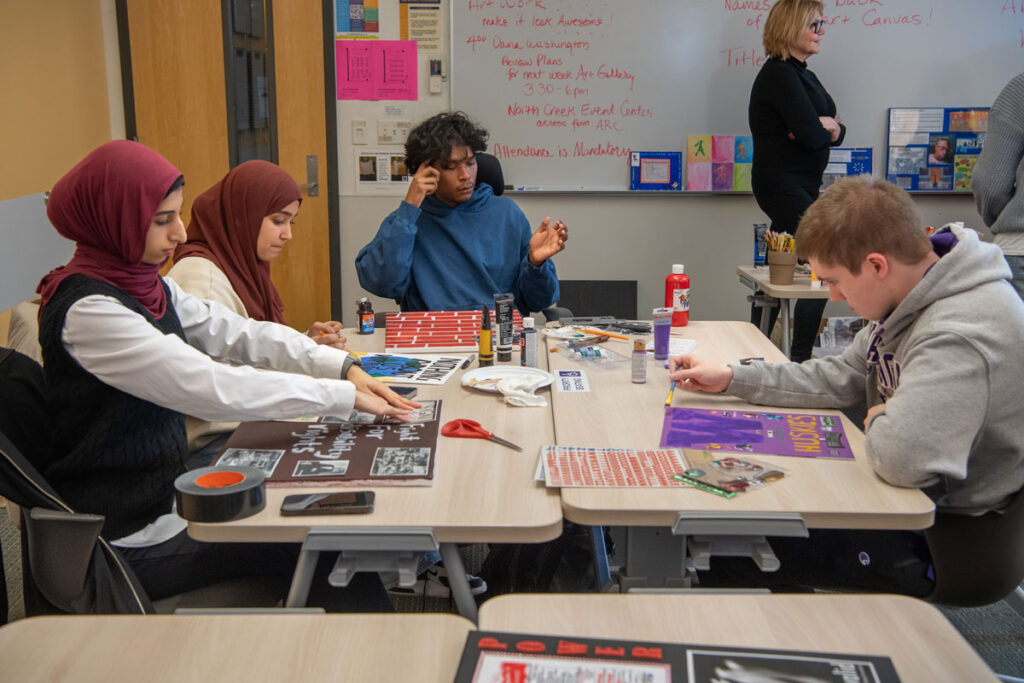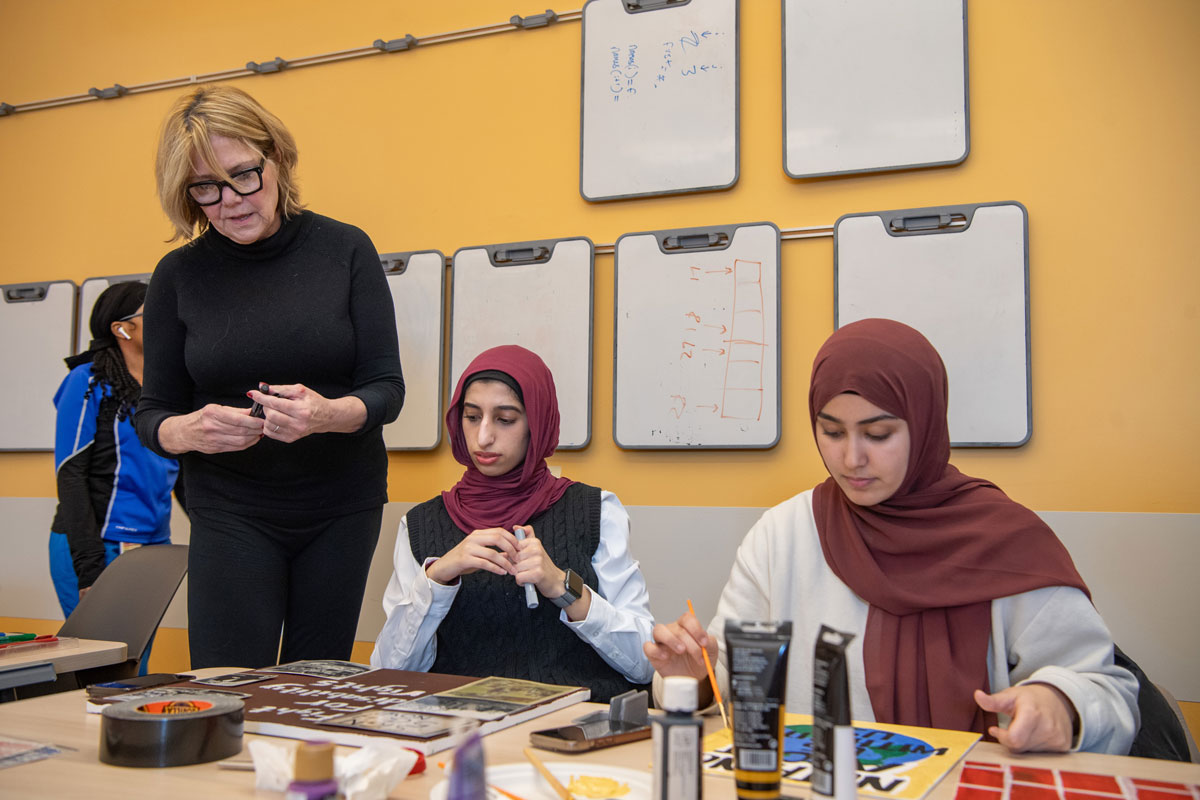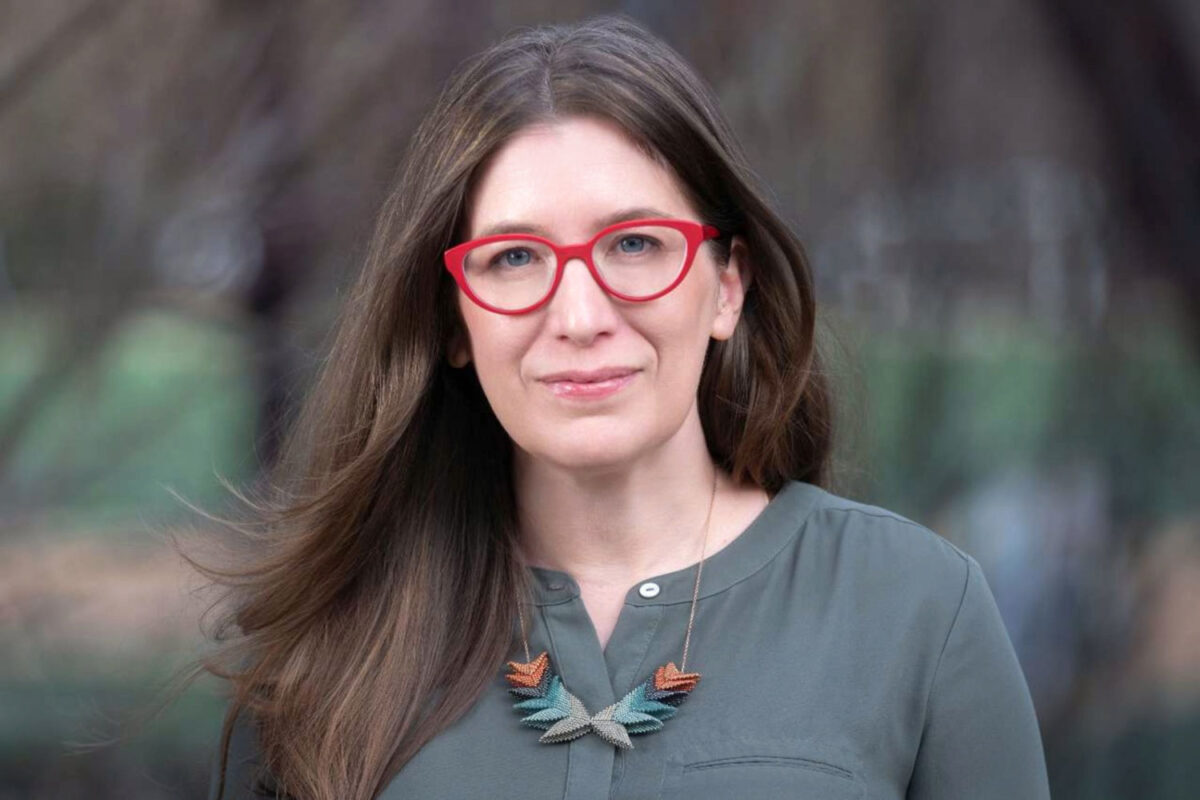Dr. Maureen West is passionate about disability justice. While not the sole topic she focuses on as an associate teaching professor in the University of Washington Bothell’s School of Nursing & Health Studies, it’s a subject she holds near and dear to her heart.
“I’m fortunate that I work at a university that values really innovative curriculum,” West said, “and allows me to design courses that haven’t been the norm — courses that give voice to disability justice and the importance of understanding disability history.”
In one such class, “Disability Representation in Society,” students learn to address important social issues through an interdisciplinary perspective, focusing on the relationship between individuals and society.
She’s taught the course every year since she first came to UW Bothell in 2012. In her most recent iteration, which she taught in winter 2024 quarter, West looked to add a new layer to the curriculum — engagement with an important partner in the disability community.
Ongoing advocacy
Growing up, West was acutely aware of the challenges people with disabilities faced in an able-bodied world because of her older brother, Mark, who has a severe learning disability.
“I’ve experienced ableism just in association with my brother and seen how he was excluded,” she said. “He wasn’t educated in the public school system but rather in a hospital school. People never understood him because he was out of sight, out of mind. That sense of exclusion and ableism was alive and strong in the ’50s and ’60s, and it was really exciting to see the advances we later made in policy.”
When the Americans with Disabilities Act was passed on July 26, 1990, West was working for then Senator Robert J. Dole, who helped champion the act.
“I worked with many stakeholders, however, people with disabilities and their families, and disability advocates informed our work. I learned the importance of working together, collaboratively, and in a bi-partisan way to ensure full inclusion and opportunity for all people,” West said.
Working across communities and organizations has been an integral theme to her courses in the past, and she was excited when a new partner opportunity came along. Through UW Bothell’s Office of Connected Learning, she connected with Seattle Children’s Hospital’s Alyssa Burnett Adult Life Center, an adult education school in Bothell that serves those with autism spectrum disorder and other developmental disabilities. The center has partnered with the University in various courses and programs since it first opened in 2014.
By engaging with organizations such as the Alyssa Burnett Center, West said, students can put theory to practice in a way they can’t in a classroom.
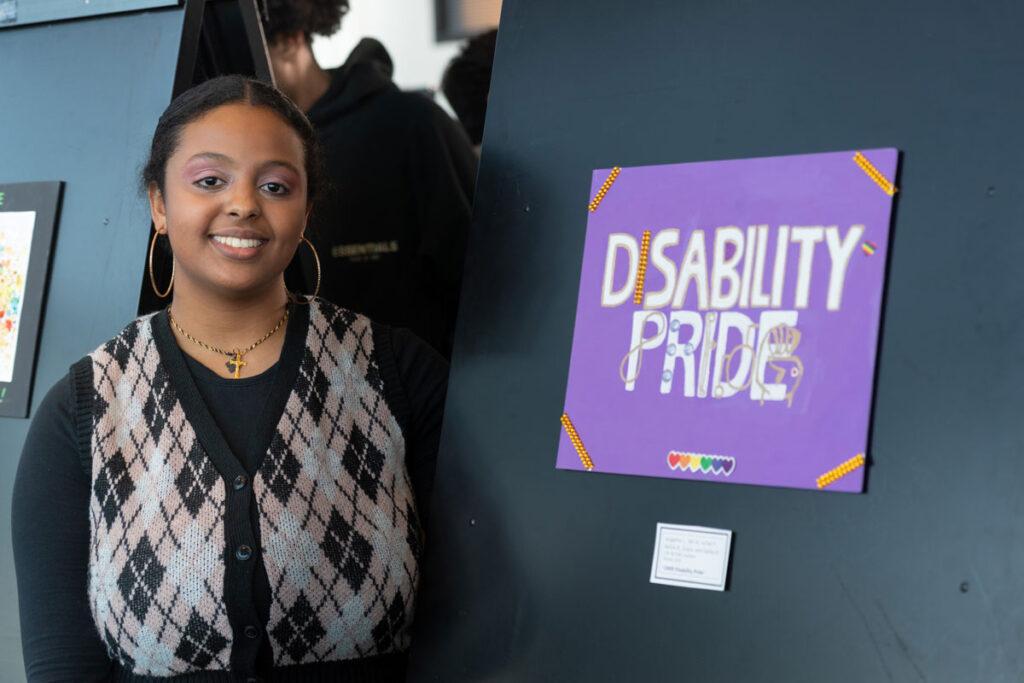
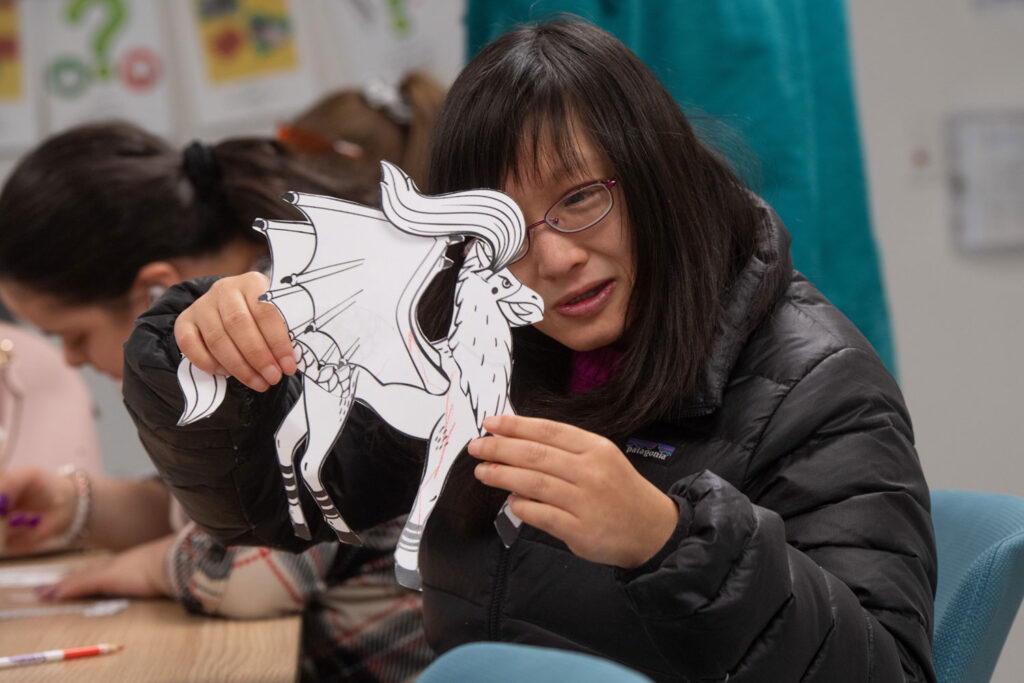
Beyond theory
As part of UW Bothell’s Discovery Core Experience, the course takes an interdisciplinary angle to appeal to students across majors and interests who are still deciding what studies to pursue.
“Students have been really excited to talk about how to apply critical disability studies and a disability justice framework to their academic pursuits — but also in working to identify and disrupt systemic influences that lead to the exclusion and discrimination of people with disabilities,” West said.
For first-year Computer Engineering major Hajer Alarak, the course appealed to her desire to learn about the diverse experiences and perspectives of individuals with disabilities, including the societal barriers they encounter.
“I’m committed to fostering inclusivity and understanding in my community, and this course offered a unique opportunity to engage with diverse perspectives and contribute to meaningful change,” Alarak said.
Throughout the course, West said she focuses on sharing with students not only a history of disability oppression and the importance of the disability rights movement but also the growing and powerful intersectional movement of disability justice. Outside the classroom, students aligned the theoretical framework they learned by participating in classes at the center.
“Engaging with students from the Seattle Children’s Alyssa Burnett Adult Life Center was an eye-opening experience, particularly witnessing how much the participants thrived in such a supportive environment,” Alarak said. “In our collaborative discussions, it was evident how much they valued the opportunity to contribute and be heard.
“Witnessing their growth and confidence throughout the course highlighted the transformative power of inclusive education and representation.”
I’m committed to fostering inclusivity and understanding in my community, and this course offered a unique opportunity to engage with diverse perspectives and contribute to meaningful change.
Hajer Alarak, first-year student, Computer Engineering
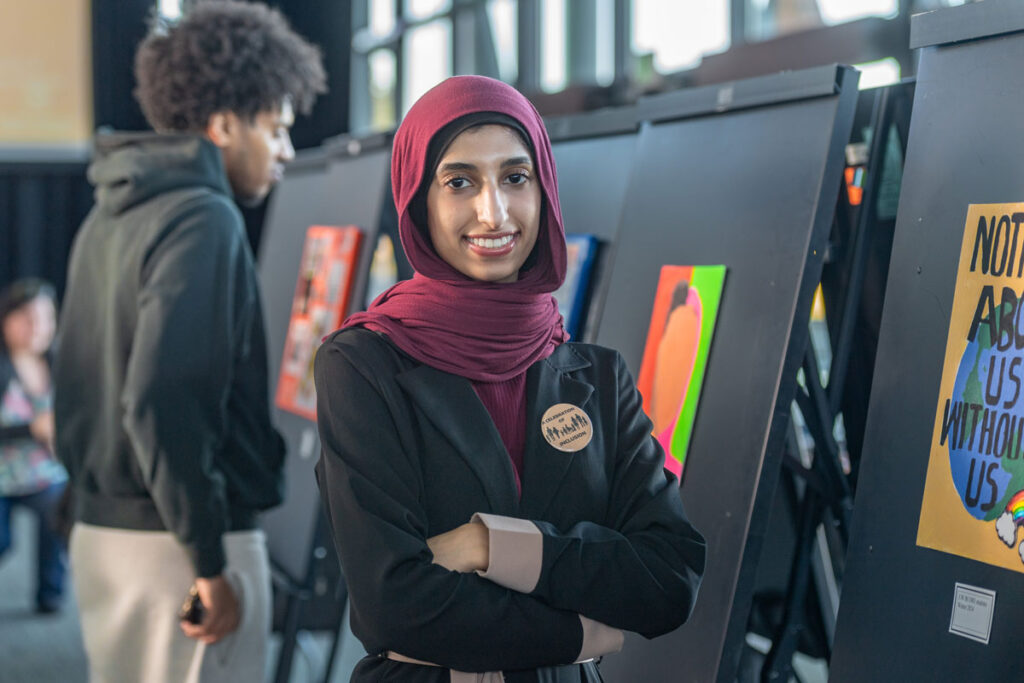
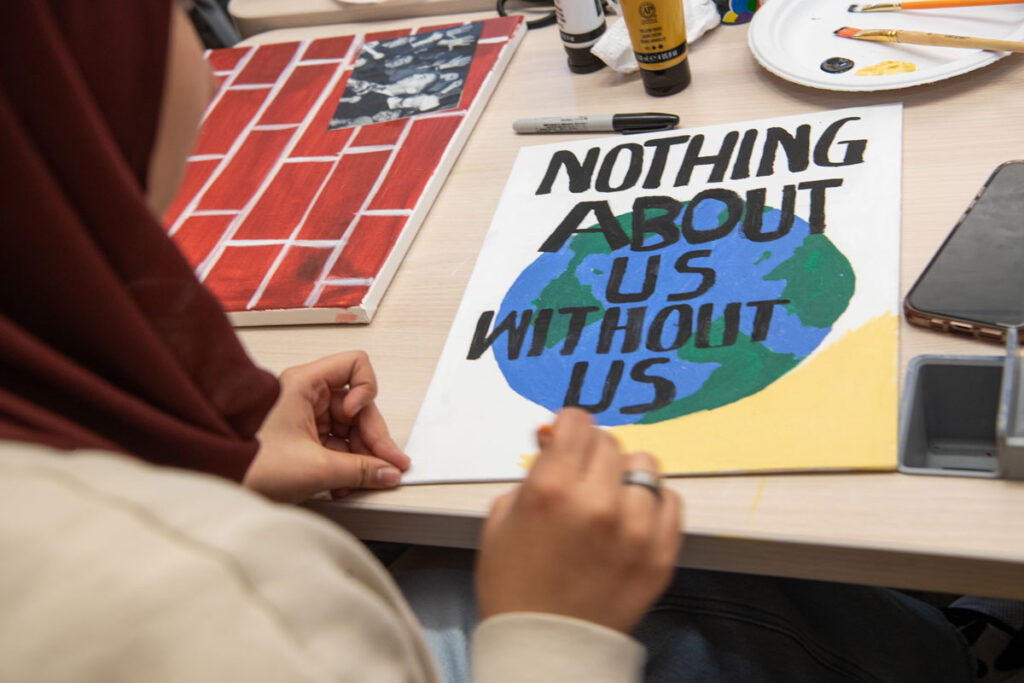
Creative connections
Both in the classroom and in their work at the center, students also participated in collective art projects to give voice to the framework they’d learned.
For her project, Alarak showcased historic moments in the fight for disability rights through visual representation.
“My project aimed to highlight the resilience and contributions of individuals with disabilities to our shared history and ongoing pursuit of equality and inclusion,” she said. “I found the art projects to be like a breath of fresh air, providing a creative outlet that complemented our academic discussions.”
At the end of the quarter, the students’ work culminated in a collective art showing, including an opening reception for the exhibit, “A Celebration of Community Inclusion: The Art and Practice of Disability Justice.”
“The art gallery was a wonderful opportunity to showcase some of the ABC participants’ work and expression to the larger community in a tangible way,” said Laura Rodrigues, a program coordinator at the Alyssa Burnett Center. “An event such as the art gallery gives our participants the visibility not often present in society and celebrates their presence and contributions.”
The exhibit includes 17 pieces of art, currently on display at Founders Hall and Commons Hall.
“Through art,” West said, “students came together to give voice to disability, justice and inclusion.”
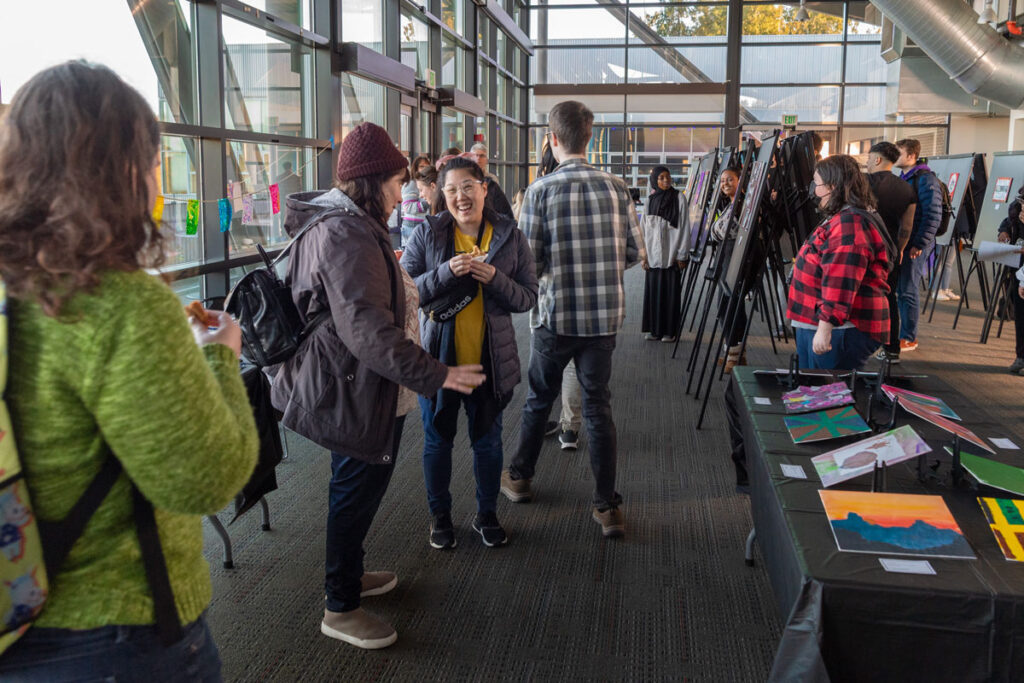
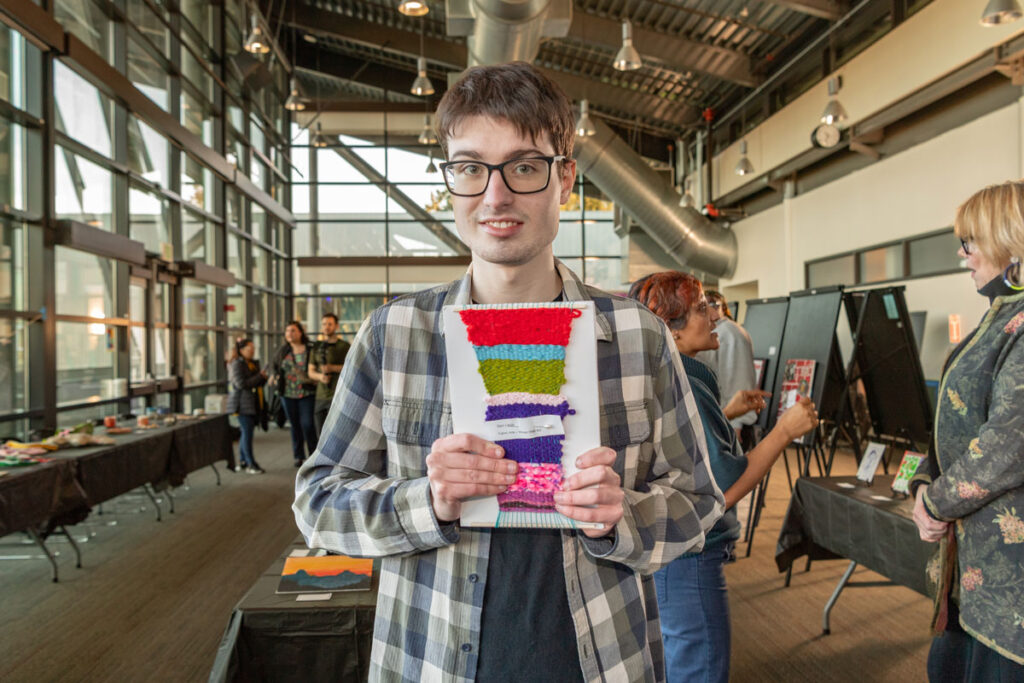
Future applications
“This partnership holds so much value for both parties,” Rodrigues said. “It fosters community inclusion and integration by building a peer-based model with mutual learning on both sides. It also provides valuable opportunities for UW Bothell students to get exposure to different career options that support adults with disabilities.”
A key outcome from this relationship, she added, has been increased interest in career exploration in this area. Rodrigues noted that several UW Bothell students and alumni have continued to volunteer at the center or even gone on to work there post-graduation.
“I’m always inspired by the students who have gone above and beyond their curriculum’s assignments and continue to engage with the center after the end of their class,” she said. “We have several amazing staff members thanks to our partnership with UW Bothell!”
Throughout the quarter, West said, the curriculum always tied back to an essential mantra in the disability justice community: “Nothing about us, without us.” Their community engagement work was key in driving this point home.
“That collaboration, working and learning alongside each other, has been really exciting for the students,” West said. “They’ve learned that there are so many ways to be in the world. We want to honor that, and I think we have through our community-engaged work.”
West plans to continue partnering with the Alyssa Burnett Center and will again offer the course, “Disability Representation in Society,” in autumn quarter 2024.
